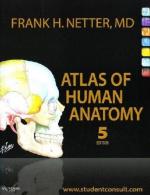|
This section contains 4,865 words (approx. 17 pages at 300 words per page) |

|
Sigmund Freud (1856–1939) famously described human beings as sick animals, caught between the apparent transcendence of rationality and the immanent reality of being physical creatures that need food to survive, that defecate, that reproduce through sexual intercourse, and who will die. While one need not accept all Freud's claims, this distinction between two different types of human experience provides a useful starting point for exploring the historical development of ideas concerning the relationship between the human body, religion, and gender. While Freud is at pains to accept the significance of the body (and particularly sexuality) for human self-understanding, in effect questioning the extent to which rationality can be understood as the defining feature of human being, other interpretations of these different experiences have tended to undervalue or belittle physicality. Religious theorizing has made a consistent separation between the intellect and the...
|
This section contains 4,865 words (approx. 17 pages at 300 words per page) |

|




